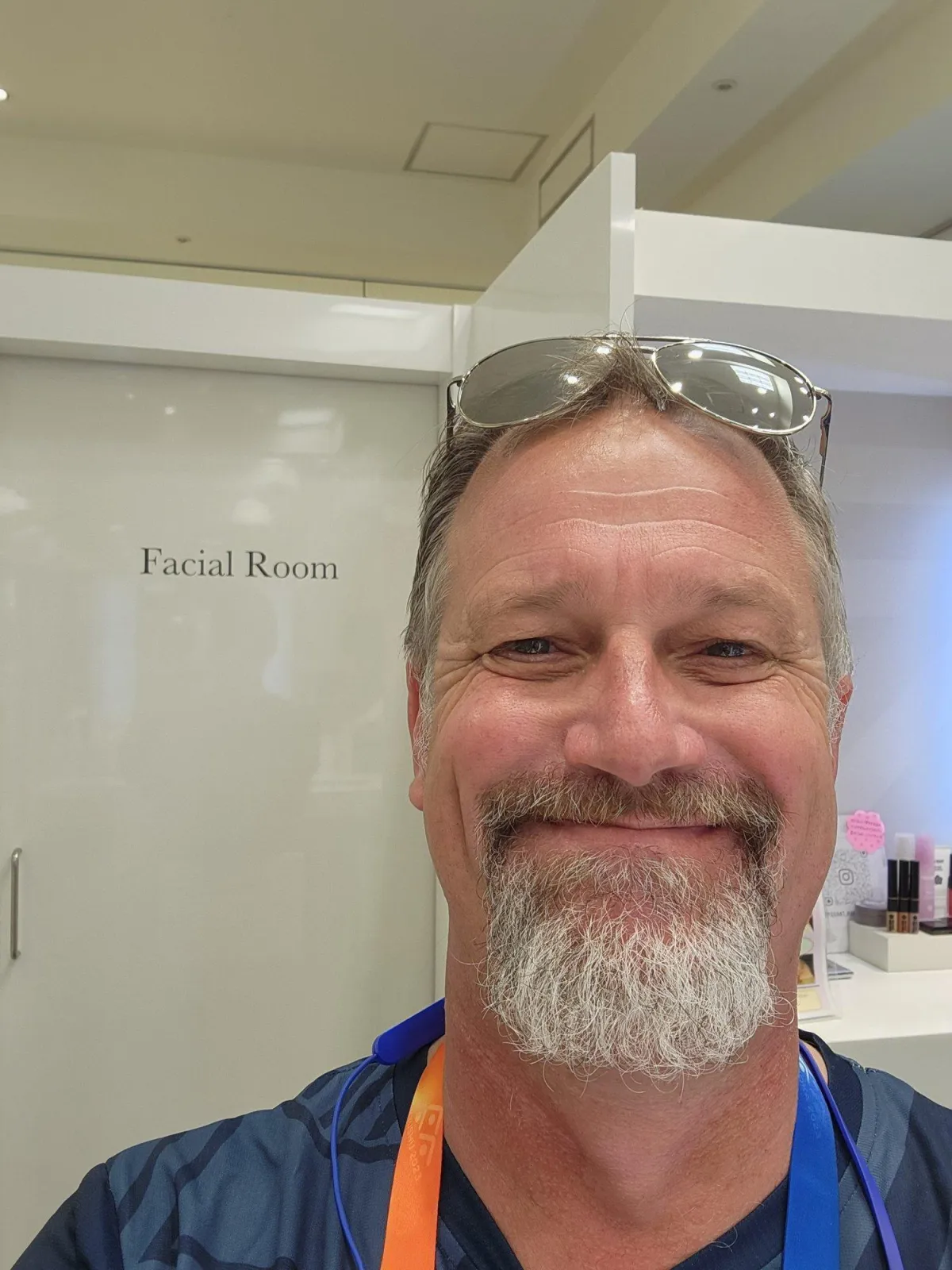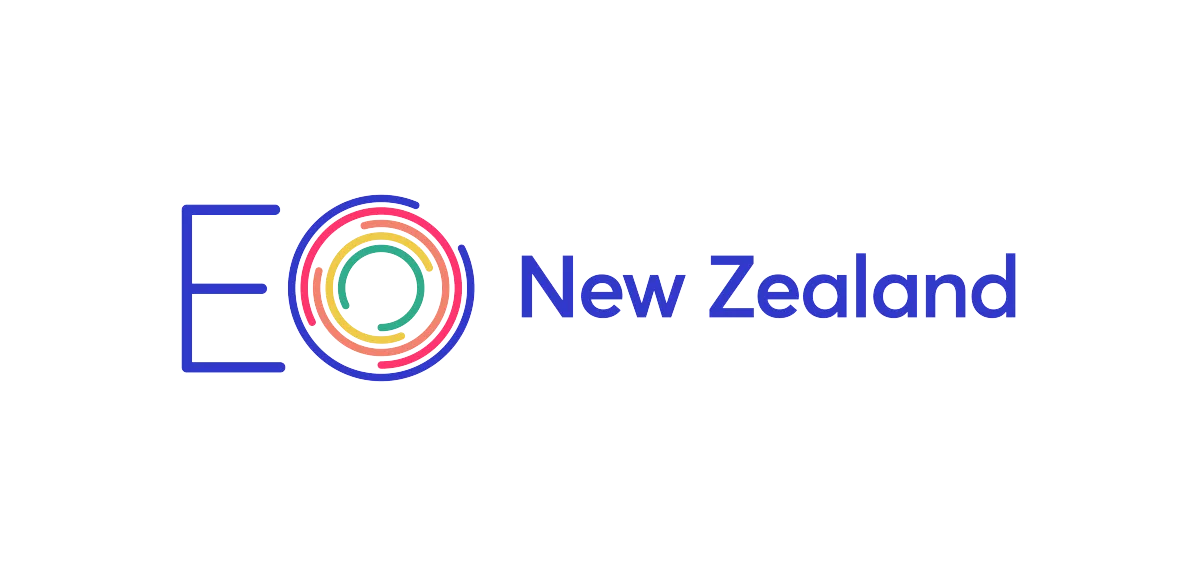
A metamorphosis: Horst Miehe on riding the waves of business
Back at university, Horst was always much more interested in swimming than his social science classes – but at the time, he hadn’t considered turning it into a career. He started with a post-grad, low-pay swim coach position – it got him in the water doing what he loved. Then he never looked back. His business Swim Gym is now one of the largest centres for swim lessons in the country.
The last few decades have been full of quick development, big projects, and a whole lot of changes in Horst’s approach. Digitisation, dealing with employees, doubling down on values – there have been so many learnings over the last few years. Keeping ahead of it, Horst says, has been about being open to change and leaning on EO.
When growth ‘happens to you’
Horst’s entrepreneurial trek has been a hell of a journey – from the early 90s, running Learn to Swim in Auckland and Matamata with about 800 students to now, employing 130 staff across 13 pools, delivering around 10,000 lessons every week.
He’s focused on social good programmes, like Find your Field of Dreams, offering free swim lessons to over 20,000 South Auckland students every year. He’s involved with coaching and education through Making Waves, which takes him travelling across the world training coaches at the national level. Horst’s world encompasses many pools, and countless swimmers.

But the road to this growth wasn’t exactly what you would call “strategic.” Horst explains, “It has been a metamorphosis. The expansion over the years – it honestly kind of happened to me, not something that I was doing on purpose.”
That somewhat-accidental growth came with ‘massive growing pains’, especially in the early days. “Back then, the teachers of course knew what they were doing, but the business side of things was really hard. Knowing and understanding all that goes into just the functioning and management and structure of running a business has been such a long, interesting process.”
As Horst describes, the growth seemed to happen in big chunks. A tender for a new pool in 2003 picked up the business in a big way – and it necessitated a more professional management system and hiring process. The next wave happened in 2011, when the business built their first pool – borrowing much of the money to get it done. “At that point, we realised we needed to implement a much better way of handling data, and we had to invest a lot into going digital.”
Like so many entrepreneurs, the earlier years were reactive. Growth preceded the management of that growth, and every new stage brought with it something new.
The tough decisions through COVID
When the pandemic hit, everything came to a screeching halt. Swim Gym shut for over nine months out of two years, they had no way to deliver lessons, and big, hairy questions were flying at every level of the business. Would they offer refunds? And if they did, could they then afford to keep staff? As a pre-paid service, what was their responsibility to customers?
It was a constant battle – within the board, within the staff, on the frontline with customers. “That period of time was just about resilience, more than anything else. And communication. I had to keep key staff engaged and employed even though we didn’t know what the future would bring. I had to be really positive, really clear. Looking back, we did ok, but it was a very difficult, confusing time.”

The decisions were made, Horst explained, because of conversations that happened around the EO forum table. “We were able to get some insight about what other people were doing. What was the expectation? How were other people in my position handling this?”
Ultimately, they pulled through. They “pitched in the middle” in terms of giving refunds – and it was enough to keep the really important staff, and maintain good customer relationships. But they still faced complaints; there were still arguments in the boardroom. “In the end, the win was all around communication. We learned so much from that tough period of time. And we kept all the important people.”
Structure, challenge, and community – five years with EO
“EO brings you such a diverse range of perspectives. It gives you a very real look at just about everything. That has been so valuable,” says Horst.
Whether it’s political leanings, or how to handle a global pandemic, or managing people, or going about charitable programmes – people around the forum table bring a full spectrum of ideas and challenges. It isn’t a single-minded community. Horst says that while sometimes the opinions people offer clash with his own, the diversity pushes everyone to think more critically, and engage at a deeper level.
Combine that community aspect with the tangible learnings – understanding employee behaviour, dealing with staff, implementing IT systems – and it’s easy to see why EO has become a vital resource for Horst. “It’s not just business that I understand better. It’s everything. It’s how to see and listen to and understand people.”
A huge shift has been around putting values first. “In the beginning, we were pretty laissez-faire, thinking we were ‘just’ there to deliver lessons” he explains, “but recently, I’ve really come around to just how important it is to look carefully at our value structure.”

The top ones for Swim Gym? Community (look after each other) and Performance (strive to be the best).
Those trickle down into different areas of the business. Carefully looking at internal communication structures, and making sure teams don’t get much larger than 10 people, for example. At the board level, those values and structure have helped keep senior people accountable, with more regular reviews, check-ins and huddles.
Business is truly a journey. And as Horst knows well, it’s not always the one you expect. Horst’s love for swimming may have gotten him started on the journey – but it’s taken far more learning, collaboration, and open-mindedness to get him to today.
